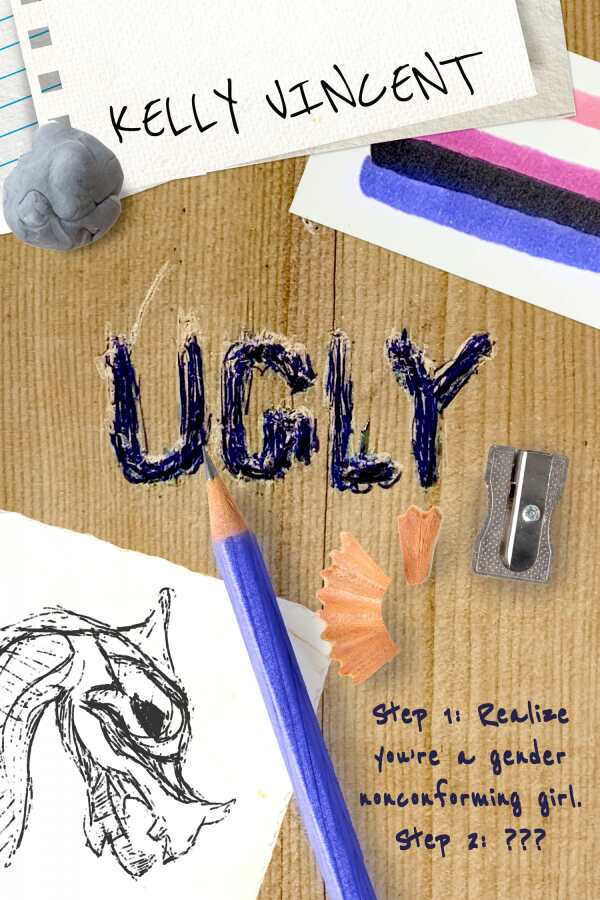Ugly
Kind people make a beleaguered, artistic teenager’s life happier in the moving novel Ugly.
In Kelly Vincent’s empathetic novel Ugly, an awkward, misunderstood teenager finds solace and salvation in her art.
Nic is a high school sophomore in a conservative Oklahoma town who contends with bullies and random jeers. Because of her height, bone structure, and disdain of makeup, she is often mistaken for a man. Others assume that she is a lesbian.
Nic is attracted to boys but believes that she is ugly due to the near-daily harassment she faces from peers, teachers, her brother, and even strangers. She eats lunch in the stairwell with her best and only friend, Sam, who is caring and supportive of Nic’s art. Sam devises a plan, Operation Social Interaction for Nic, to help her make more friends. This plan becomes all the more crucial when Sam announces that her family is moving to Scotland.
Nic is an awkward, sympathetic heroine who narrates with vulnerability and self-loathing. She often misreads social cues, even as she makes efforts to interact with other students. For example, thinking that an attractive boy flirted with her in class, she drops by his house, only to be met with a horrified expression, bringing on further harassment at school. The daily taunts lead her to question her identity. Although she is reluctant to discuss her gender confusion with Sam or her parents, she looks for answers online. She wonders if her aversion to “feminine” accouterments might be related to having been molested by her father’s friend when she was little—another issue that she does not share with others.
Generous-hearted characters make Nic’s situation more palatable. She receives sympathy from her art teacher, who recognizes her talent; from a kind boy, Zach, who sometimes gives her rides to school; and from a Vietnamese American student, Mia, who is in the art club and, Nic suspects, is in an abusive relationship with an older guy. Her parents are also understanding and supportive, leading to refreshing narrative turns.
Nic’s high school setting is fleshed out in familiar terms. Students go to parties, drink beer from red plastic cups, and make out in corners. These tropes flatten the story somewhat, as do predictable scenes in which Nic eats lunch in the stairwell, deals with her best friend getting a boyfriend, and feels left out. And the novel’s concerns are further broadened when Nic’s parents announce that they are having financial difficulties; Nic won’t be getting the car that she was promised for her birthday. Her questioning regarding her gender identity is more distinguishing.
Still, the novel is most propelled by more general teenage concerns, as with Nic’s dating prospects, work to make new friends, and efforts in an art contest. Her ideas about getting out of Oklahoma result in additional color, as does a trip to Scotland to visit Sam. Glimmers of hope exist at the novel’s satisfying end, which makes room for the continuation of Sam’s story.
In the moving novel Ugly, a high school student confronts gendered issues in a conservative environment and works toward achieving her dreams.
Reviewed by
Suzanne Kamata
Disclosure: This article is not an endorsement, but a review. The publisher of this book provided free copies of the book and paid a small fee to have their book reviewed by a professional reviewer. Foreword Reviews and Clarion Reviews make no guarantee that the publisher will receive a positive review. Foreword Magazine, Inc. is disclosing this in accordance with the Federal Trade Commission’s 16 CFR, Part 255.

